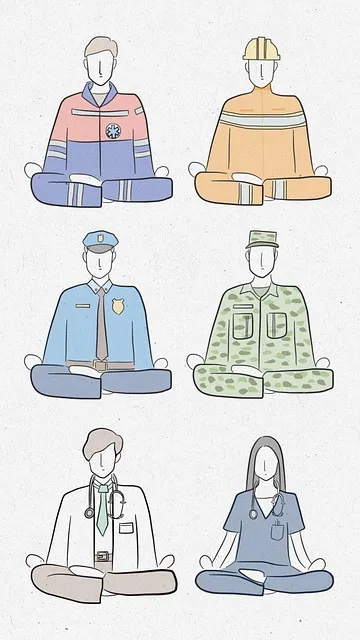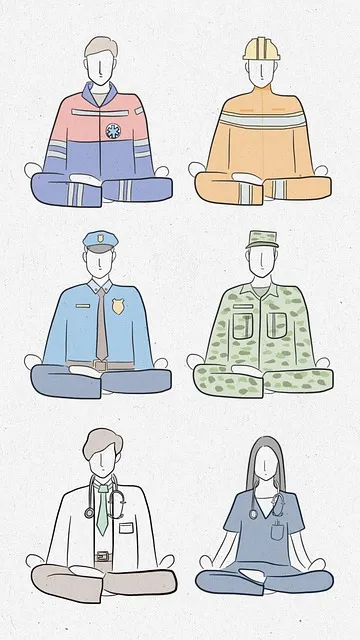Kaiser Permanente Longmont prioritizes mental well-being through their Community Outreach Program, utilizing the RFM (Resilience, Flexibility, Mastery) model. They offer initiatives like Social Skills Training and Trauma Support Services, emphasizing evidence-based practices and cultural sensitivity. Their focus on emotional intelligence and structured exercises, including self-care routines and journaling, builds resilience and enhances mental fortitude. The RFM program has transformed staff well-being, improving coping mechanisms and job satisfaction within the organization.
“Explore the power of resilience through RFM (Recovery, Flexibility, and Mastery), a proven approach enhancing mental well-being. This article delves into the transformative impact of RFM on individuals’ mental health, using Kaiser Permanente Longmont as a case study. We examine their unique resilience-building exercises and uncover essential components for effective programs. Real-life success stories from Kaiser Permanente highlight how RFM fosters resilience, offering valuable insights for those seeking to navigate life’s challenges with strength and adaptability.”
- Understanding RFM and Its Impact on Mental Well-being
- Kaiser Permanente Longmont's Approach to Resilience Building
- Essential Components of Effective Resilience Exercises
- Real-Life Success Stories: RFM in Action at Kaiser Permanente
Understanding RFM and Its Impact on Mental Well-being

Resilience is a powerful tool for maintaining mental well-being, and Kaiser Permanente Longmont recognizes its importance. The RFM (Resilience, Flexibility, and Mastery) model is a framework that helps individuals develop resilience, particularly in challenging situations. By understanding one’s responses to stress and trauma, people can learn to adapt and bounce back more effectively.
Kaiser Permanente’s Community Outreach Program Implementation includes various exercises and training sessions focused on building resilience. These initiatives aim to enhance individuals’ ability to cope with life’s curveballs, thereby improving their overall mental health. Activities may include Social Skills Training, which fosters a sense of belonging and confidence, ultimately boosting one’s resilience and mental fortitude.
Kaiser Permanente Longmont's Approach to Resilience Building

Kaiser Permanente Longmont takes a holistic approach to resilience building, recognizing that mental health is intricately linked to overall well-being. They offer comprehensive programs aimed at empowering individuals to navigate life’s challenges with greater strength and adaptability. One notable initiative is their focus on Trauma Support Services, which provide specialized care for those who have experienced traumatic events. These services incorporate evidence-based practices to help individuals process and overcome trauma, fostering a sense of safety and resilience.
The organization also emphasizes the importance of Emotional Intelligence and Cultural Sensitivity in Mental Healthcare Practice. By training their staff to recognize and respond to emotional cues and cultural nuances, Kaiser Permanente Longmont ensures that every patient receives care tailored to their unique needs. This personalized approach not only enhances the effectiveness of therapy but also builds trust between healthcare providers and clients, creating a safe space for vulnerability and growth.
Essential Components of Effective Resilience Exercises

Building resilience through structured exercises has become a cornerstone in mental health initiatives, such as those offered by Kaiser Permanente Longmont. Effective resilience training incorporates several key components that foster an individual’s ability to cope with stress and adversity. One of the foundational aspects is self-care routine development. Encouraging participants to establish consistent self-care practices, including regular exercise, adequate sleep, and healthy eating habits, forms a solid base for emotional well-being. This not only enhances overall mental health but also serves as a powerful tool in preventing conditions like depression.
Additionally, mental wellness journaling exercises have proven effective in this context. Journaling provides an outlet for individuals to express their thoughts and emotions, enabling them to gain valuable insights into stress triggers and coping mechanisms. By documenting experiences and feelings, participants can identify patterns, process difficult events, and develop strategies to navigate challenges more effectively. This practice supports the development of mental agility and resilience, ultimately contributing to better long-term mental wellness.
Real-Life Success Stories: RFM in Action at Kaiser Permanente

At Kaiser Permanente Longmont, the implementation of RFM (Resilience, Flexibility, and Mastery) exercises has been a game-changer in their mental health initiatives. Through this structured program, individuals have found success in managing stress and cultivating resilience, leading to improved overall well-being. The RFM approach focuses on teaching practical skills to navigate life’s challenges, fostering a sense of empowerment and control.
This method is particularly effective in the fast-paced healthcare environment where staff members often face high-pressure situations. By participating in regular RFM sessions, Kaiser Permanente Longmont employees have reported increased confidence and better coping mechanisms. The program encourages participants to share their experiences, creating a supportive community that enhances learning and personal growth. This real-life success story showcases how compassion cultivation practices and the mental wellness Podcast Series production can be powerful tools in an organizational setting, ultimately contributing to a healthier and happier workforce.
Resilience is a powerful tool for enhancing mental well-being, and Kaiser Permanente Longmont’s implementation of RFM (Resourceful Front-line Management) exercises demonstrates this effectively. By integrating these strategies into their approach, the organization has not only improved employee resilience but also contributed to a healthier work environment. The success stories highlighted in this article underscore the positive impact that structured resilience building can have on individuals and organizations alike, especially within the context of Kaiser Permanente’s commitment to mental health initiatives in Longmont.






